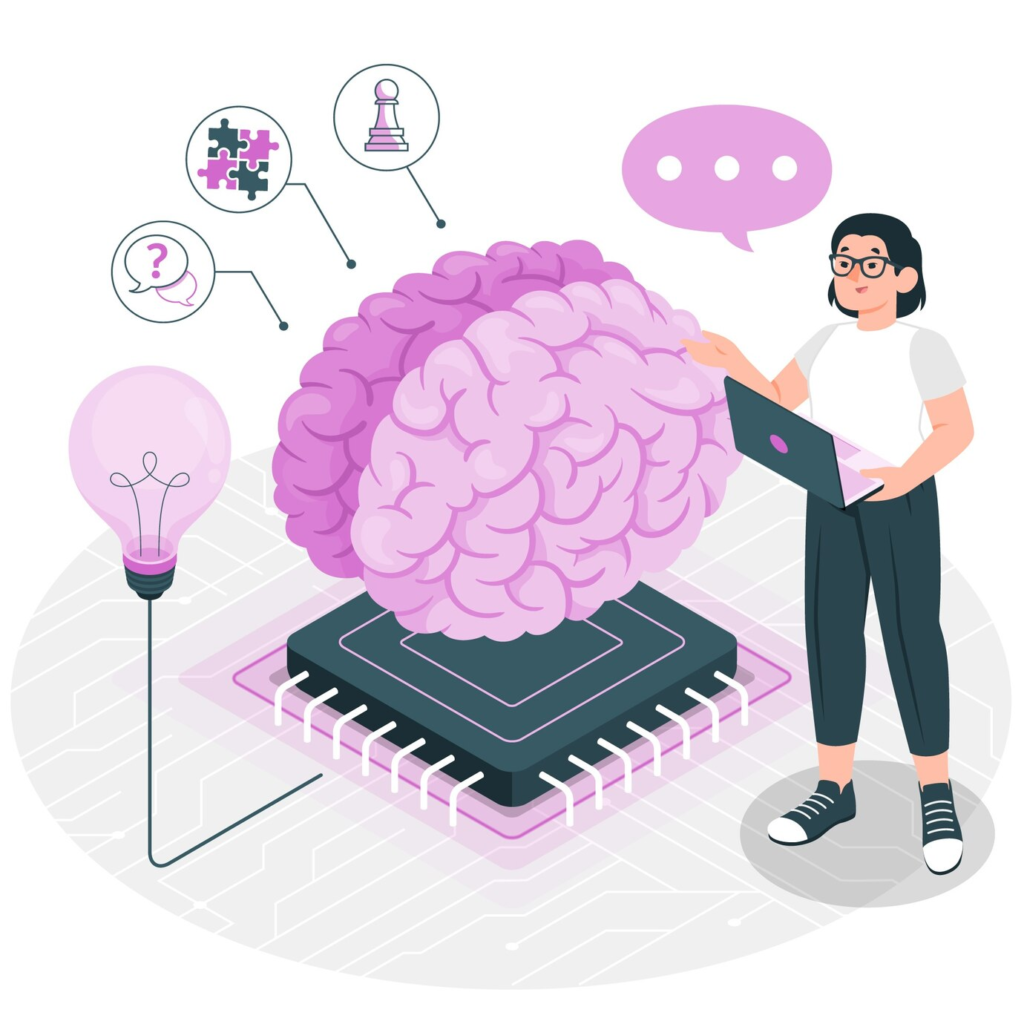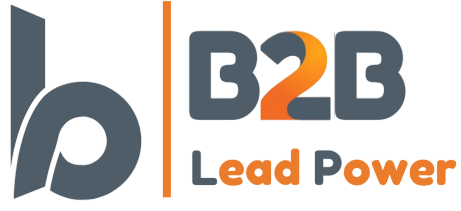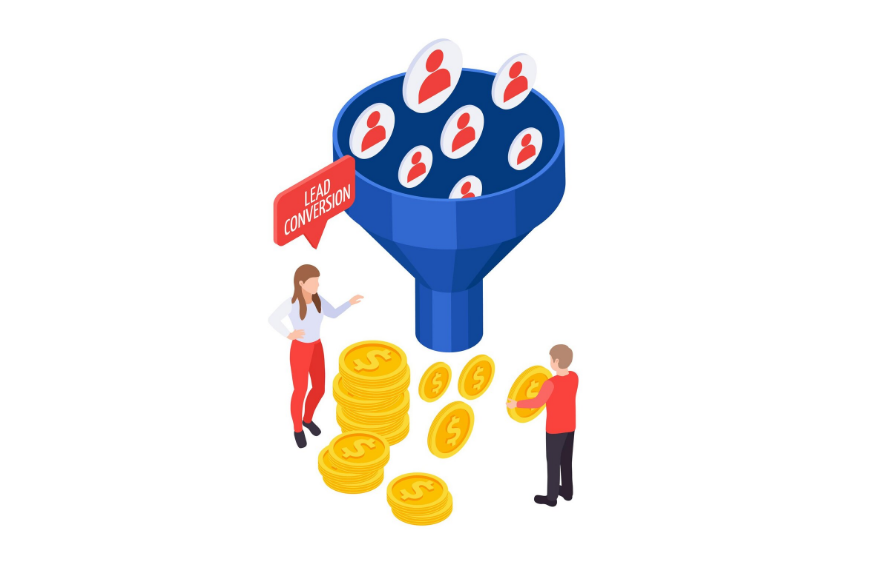Introduction to Machine Learning in B2B
Machine learning, a subset of artificial intelligence, plays an increasingly pivotal role in reshaping B2B lead generation strategies. By employing algorithms that can learn from and make predictions based on data, businesses can enhance their customer acquisition processes significantly. The infusion of machine learning into sales and marketing enables companies to glean insights from vast amounts of data, thereby optimizing their strategies for better outcomes.
One of the most impactful applications of machine learning in B2B is predictive analytics. This capability allows businesses to forecast future trends and behaviors based on historical data. For instance, machine learning algorithms can analyze patterns in past customer interactions to predict which leads are most likely to convert. By focusing on these high-potential leads, companies can allocate their resources more effectively, improving their return on investment.
In addition to predictive analytics, machine learning empowers data-driven decision-making. Traditional B2B marketing strategies often rely on intuition or past experiences to make decisions. In contrast, machine learning utilizes actual data to drive decisions, minimizing biases and subjective inputs. This shift towards a data-centric approach not only boosts the accuracy of lead generation efforts but also fosters a culture of continuous improvement, as businesses can adapt their strategies based on real-time data insights.
Furthermore, machine learning enhances efficiency by automating repetitive tasks within the sales process. By leveraging algorithms that can execute tasks such as lead scoring and segmentation, sales teams can focus on what truly matters—building relationships and closing deals. This automation not only leads to improved operational efficiency but also allows teams to respond more promptly to qualified leads, ultimately driving higher conversion rates.
Overall, the integration of machine learning into B2B lead generation is transforming how businesses approach their marketing and sales strategies, offering a pathway to more efficient and effective operations.
Understanding Your Target Audience with ML
In the ever-evolving landscape of B2B lead generation, understanding your target audience is paramount. Machine learning (ML) has emerged as a pivotal tool in achieving this understanding by providing sophisticated techniques for data analysis and interpretation. By leveraging algorithms capable of processing vast amounts of data, businesses can gain deeper insights into their potential leads, enhancing their marketing strategies significantly.
One of the primary techniques employed in ML for audience comprehension is clustering. This method groups similar entities based on established attributes, allowing businesses to identify distinct segments within their audience. For instance, a B2B company can analyze customer behavior, preferences, and demographics to create clusters representing different buyer personas. Such segmentation enables organizations to tailor their messaging, ensuring that they address the specific needs and pain points of each group effectively.
Additionally, machine learning facilitates persona development, a process critical for formulating targeted marketing campaigns. By utilizing predictive analytics, companies can discern the factors that contribute to successful engagements and refine their personas accordingly. This targeted approach not only amplifies outreach efforts but also increases the likelihood of converting leads into loyal customers. The integration of ML algorithms into data-driven marketing strategies allows for ongoing refinement of these personas as new data becomes available, ensuring that businesses stay aligned with shifts in audience behavior.
Ultimately, harnessing machine learning techniques results in improved precision when identifying potential leads. By understanding the intricacies of audience preferences and behaviors through clustering, segmentation, and persona development, businesses can craft personalized experiences that resonate with their target demographic. This not only enhances lead generation efforts but also fosters long-term relationships, ultimately bolstering overall business success.
Data Collection and Preparation
Effective lead generation in the B2B sector heavily relies on the quality of data collected and prepared for machine learning applications. The initial step involves data sourcing, where organizations must identify relevant data streams. These streams may include customer relationship management (CRM) systems, industry reports, social media interactions, and website analytics. By leveraging diverse sources, businesses can gain a comprehensive view of potential leads.
Once the data is sourced, the subsequent phase is data cleaning. This step is crucial, as the integrity of data significantly influences the performance of machine learning models. Cleaning data involves identifying and rectifying anomalies, such as duplicate entries, missing values, or inaccurate information. Ensuring that the dataset is free from error enhances its reliability and enables machine learning algorithms to make informed predictions.
After cleaning, normalization is essential to maintain uniformity across different scales and formats of data. This process helps in standardizing the data, ensuring that each feature contributes equally to the analysis. For instance, if one feature is on a scale of 1-100 and another on a scale of 1-1,000, normalization allows for a balanced representation, thus aiding the machine learning model’s learning capabilities.
The final step in data preparation is feature selection, which involves identifying the most significant variables that will inform the machine learning model. This process is vital, as it reduces dimensionality and improves the model’s performance by eliminating irrelevant or redundant features. It is crucial to utilize high-quality datasets for training the models effectively, as superior data quality correlates closely with predictive accuracy and overall success in lead generation efforts.
Machine Learning Algorithms for Lead Scoring

In the realm of B2B lead generation, effectively identifying and prioritizing high-quality leads is crucial for optimizing sales efforts. Machine learning algorithms have emerged as powerful tools for lead scoring, providing insightful assessments of leads’ potential based on various data-driven metrics. This section delves into the types of machine learning techniques applicable in lead scoring, including both supervised and unsupervised learning methods.
Supervised learning algorithms are particularly useful in scenarios where labeled data is available. These algorithms, such as logistic regression, decision trees, and support vector machines, can be trained on historical lead data to predict the likelihood of a lead converting into a customer. By analyzing features such as demographic information, interaction history, and engagement levels, these models output a score that ranks leads based on their potential value. As a result, sales teams can prioritize follow-up strategies, focusing on leads that exhibit the highest probability of conversion.
Conversely, unsupervised learning methods, like clustering algorithms, enable the identification of patterns within unlabelled data. These methods, including K-means and hierarchical clustering, can group leads into segments based on similarities in their characteristics and behaviors. By analyzing these segments, sales teams can develop targeted outreach strategies tailored to specific lead cohorts, enhancing engagement and conversion rates.
Additionally, ranking algorithms can be employed to refine lead scoring. These algorithms assess and order leads based on their scores, providing sales teams with a clear and concise list of priorities. Integrating machine learning into the lead scoring process not only streamlines outreach efforts but also increases the overall efficiency of the sales pipeline. By leveraging these advanced techniques, organizations can significantly enhance their lead generation strategies and drive better business outcomes.
Personalizing Marketing Efforts with Machine Learning
In the rapidly evolving landscape of B2B marketing, personalization has emerged as a pivotal strategy, and machine learning plays a significant role in its execution. By leveraging algorithms that analyze customer data, businesses can achieve an unprecedented level of personalization across various channels, including email marketing, content recommendations, and targeted advertisements. The ability to tailor marketing efforts to individual preferences not only enhances customer engagement but also improves conversion rates significantly.
One of the most notable applications of machine learning in B2B lead generation is found in email marketing. Traditional approaches often employ a one-size-fits-all methodology, which can result in low engagement rates. However, machine learning allows for the segmentation of audiences based on their behavioral patterns and preferences. For instance, predictive analytics can determine the optimal time to send emails or recommend personalized content that resonates with specific segments. This approach was successfully implemented by a SaaS company that saw a remarkable 30% increase in open rates after integrating machine learning insights into their email campaigns.
In addition to email, content recommendations powered by machine learning have shown significant efficacy in attracting and nurturing leads. By analyzing user behavior on websites or within applications, machine learning algorithms can suggest relevant content that aligns with a user’s interests or pain points. For example, a leading B2B tech firm utilized machine learning to personalize its content delivery, leading to a 25% increase in content consumption and a significant enhancement in lead quality.
Targeted advertising is another area that has benefitted from machine learning capabilities. Utilizing sophisticated algorithms, businesses can create highly targeted ads that are served to users most likely to engage with their offerings. A well-known case involves a marketing agency that harnessed machine learning to optimize their ad placements, resulting in a doubling of conversion rates within just a few months. Such examples illustrate that machine learning not only enhances personalization but also drives tangible business results in B2B lead generation strategies.

Integrating ML with CRM Systems
In the evolving landscape of B2B lead generation, the integration of machine learning (ML) with Customer Relationship Management (CRM) systems has emerged as a significant advancement. Machine learning models facilitate the automation of lead management processes, which in turn optimizes sales efficiency and effectiveness. By analyzing vast datasets, these models identify patterns that predict customer behavior and preferences, thus enabling organizations to streamline their outreach strategies.
One of the primary benefits of incorporating machine learning into CRM systems is the enhanced analytics capabilities it brings. Traditional CRM systems often rely on historical data, which can limit their predictive accuracy. However, with the implementation of ML algorithms, businesses can analyze real-time data to gain deeper insights into customer interactions and market trends. This ability to process and interpret data in real-time allows sales teams to make informed decisions quickly, ensuring that they are equipped to react to changing dynamics in the marketplace.
Moreover, the integration of machine learning fosters improved customer interactions, which is crucial for cultivating relationships in B2B environments. By leveraging AI-driven insights, sales professionals can personalize their outreach, tailoring communication to align with the individual needs and pain points of potential leads. This personalized approach not only enhances the customer experience but also increases the likelihood of conversion, as prospects feel understood and valued.
Furthermore, real-time data integration within CRM systems powered by machine learning ensures that sales teams are always working with the most current information available. This immediacy enables prompt follow-ups and timely responses to inquiries, significantly enriching customer interactions. Overall, the synergy between machine learning and CRM systems is a powerful catalyst for improving lead generation efforts, offering businesses a competitive edge in a crowded marketplace.
Challenges and Considerations in ML Implementation
Implementing machine learning (ML) for B2B lead generation presents several challenges that businesses must navigate to effectively harness its potential. One of the most pressing concerns is data privacy. With increasing regulations surrounding data protection, such as GDPR in Europe and CCPA in California, businesses need to ensure that their ML initiatives comply with these legal requirements. Handling and processing sensitive client data necessitate robust protocols, leading to additional layers of complexity in ML model development. Companies should prioritize adopting data governance frameworks to safeguard customer information while leveraging machine learning algorithms.
Another challenge is ensuring model accuracy and reliability. Given that machine learning models learn from historical data, their effectiveness hinges on the quality and quantity of data being fed into them. Inaccurate data can lead to misguided predictions, adversely affecting the lead generation process. To combat this issue, businesses should focus on cleaning and curating their datasets before utilizing them for training models. Continuous monitoring and validation of the models are crucial for maintaining accuracy over time, especially as market dynamics and consumer behaviors evolve.
Additionally, the success of ML implementation greatly depends on the availability of skilled personnel. The demand for machine learning experts far exceeds the current supply, making it challenging for organizations to find and retain the necessary talent. As a solution, businesses might consider investing in training their existing staff or partnering with specialized firms that can provide the needed expertise in machine learning. Furthermore, establishing a collaborative environment between data scientists and sales teams can help align ML applications with practical business needs, ultimately enhancing the effectiveness of lead generation strategies.
In summary, while implementing machine learning for B2B lead generation poses considerable challenges, organizations can address these concerns through careful planning and resource allocation. By focusing on data privacy, model accuracy, and skilled personnel, businesses can navigate the complexities involved and leverage machine learning effectively in their lead generation efforts.
Future Trends in Machine Learning for Lead Generation
The future of machine learning technology in B2B lead generation is characterized by rapid advancements and innovative approaches that leverage artificial intelligence to refine and enhance business strategies. As organizations increasingly adopt AI-driven solutions, the potential for improved lead generation through predictive analytics and automated systems becomes more apparent. Emerging technologies, such as natural language processing (NLP) and advanced algorithms, are set to revolutionize how businesses identify and engage with potential clients.
One significant trend is the enhancement of predictive analytics capabilities. Machine learning models are becoming progressively adept at analyzing historical data to forecast potential leads’ behaviors and preferences. This capability allows companies to tailor their marketing efforts more precisely, ensuring higher conversion rates. For instance, businesses will soon utilize advanced algorithms that can identify variables influencing lead engagement, refining targeting efforts and optimizing resource allocation in marketing endeavors.
Furthermore, the integration of machine learning with customer relationship management (CRM) systems is anticipated to gain momentum. By embedding AI solutions within CRMs, companies can benefit from real-time insights and recommendations, streamlining their approach to lead nurturing. This integration will empower sales teams with actionable intelligence regarding lead quality and likely conversion success, facilitating a more data-driven decision-making process.
Moreover, as machine learning models evolve, they are expected to become increasingly capable of handling unstructured data. This ability will enhance the quality of insights derived from social media, online interactions, and various communication channels, providing businesses with a broader understanding of their target audience. Consequently, this evolution will lead to more effective engagement strategies.
In conclusion, the future of machine learning in B2B lead generation promises significant transformations through advanced technologies and innovative applications, set to reshape industries and drive business growth.
Conclusion and Call-to-Action
In the evolving landscape of B2B marketing, leveraging machine learning presents a significant opportunity for businesses to enhance their lead generation efforts. Throughout this discussion, it has become clear that machine learning can streamline and optimize various processes involved in identifying and nurturing leads. From predictive analytics that assist in targeting the right audience to automated systems that facilitate personalized communication, machine learning tools empower marketers to make data-driven decisions that can significantly improve conversion rates.
Moreover, as automation and artificial intelligence continue to advance, the ability to analyze large datasets swiftly becomes an invaluable asset. Organizations can benefit from adopting machine learning to not only improve efficiency but also to stay competitive in a crowded marketplace. Understanding the nuances of customer behavior patterns is enhanced through machine learning algorithms, which can identify potential leads that traditional methods may overlook.
As businesses consider their next steps, it is crucial to engage with machine learning professionals who can provide insights and expertise tailored to specific needs. Exploring various automated solutions can help organizations experiment with advanced lead generation techniques, allowing them to refine their strategies continually. Additionally, staying informed about the latest trends in machine learning and marketing will ensure that businesses remain at the forefront of innovation.
To harness the full potential of machine learning in B2B lead generation, consider implementing pilot projects that test automated tools and strategies. Continuous learning and adaptability will be key as the technologies evolve. Embrace the future of marketing by integrating machine learning into your business strategy and watch your lead generation efforts transform.






Leave a Reply